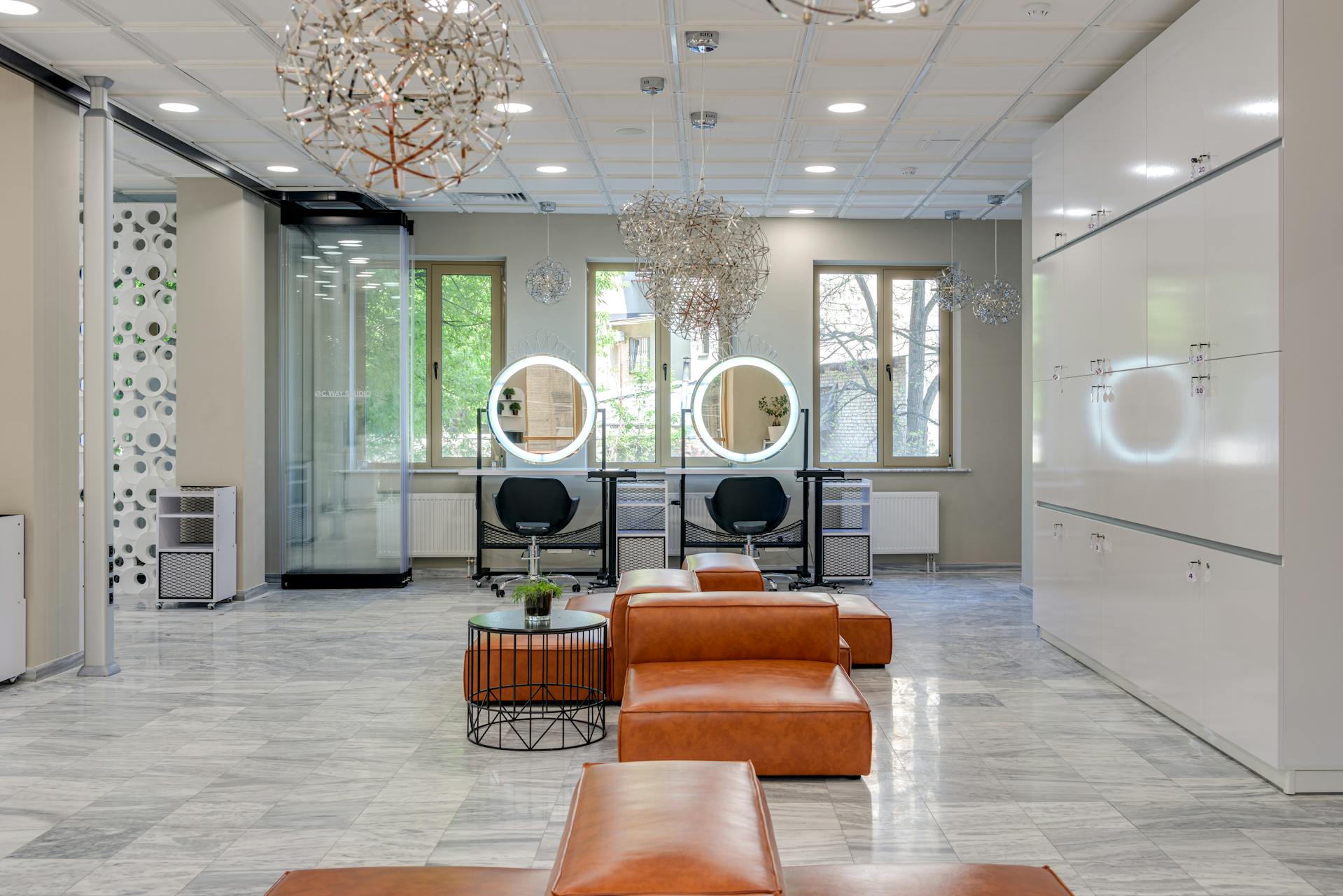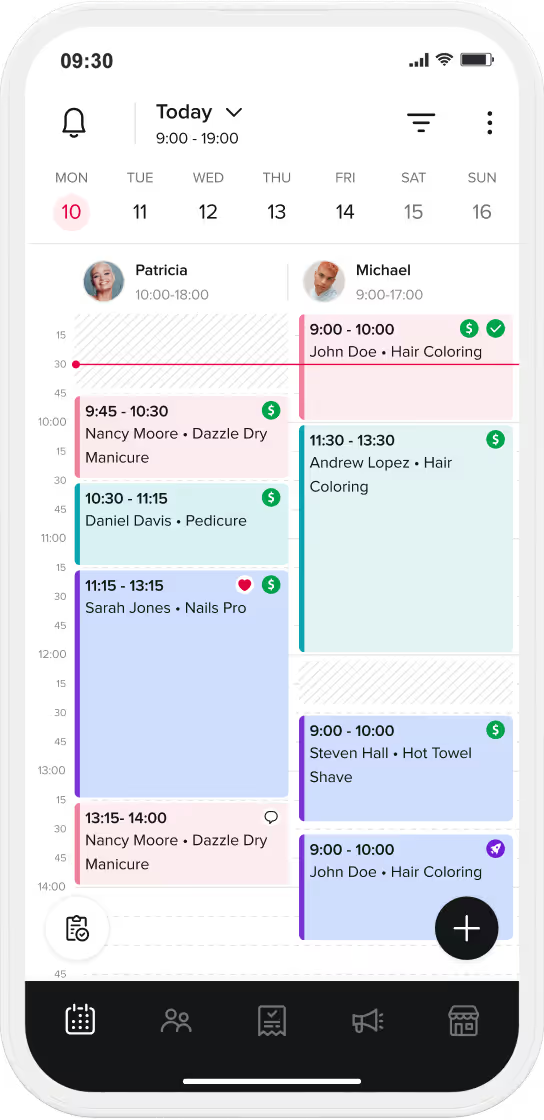

Dreaming of opening your own beauty salon, barbershop, or spa in the U.S.? The excitement is real, but securing the right salon business license is the crucial first step before you can welcome clients. This isn't just paperwork; it's the foundation of a legitimate, reputable, and thriving beauty business. This guide will cut through the confusion, demystifying salon license requirements in the United States and showing you how to get a salon license effectively, ensuring that you are fully compliant before your grand opening.
A salon business operation license is the official permit that allows your physical establishment to operate legally. It's different from the individual licenses your stylists, barbers, estheticians, or nail technicians hold to perform their services. Think of it as a license for your brick-and-mortar location itself.
These licenses are mandatory for good reasons. They ensure your salon meets specific health, safety, and sanitation standards, protecting both your clients and your team from preventable risks. Operating without proper licensing can lead to fines and legal issues, putting your entire investment at risk.
Licensing in the U.S. is complex because it's regulated at multiple levels. You'll typically deal with:
When you open your doors, you'll need more than just one piece of paper. Here are the most common types of licenses for a beauty salon you'll encounter:
This is your primary salon shop license. Issued by your state's Board of Cosmetology or Barbering, it certifies that your premises are approved for operating a beauty establishment. It's the big one!
Most cities and counties require a general local business license to operate any commercial venture within their jurisdiction. Check with your local city clerk or county administration office.
Your local health department will likely require a specific health permit and conduct thorough inspections. They'll scrutinize everything from proper sterilization of tools and safe disposal of waste to ventilation systems and cleanliness protocols.
If you plan to hire employees, you'll need a Federal Employer Identification Number (EIN) from the IRS. You'll also need a State Tax ID (or Seller's Permit) if you're collecting sales tax on retail products. These are vital for taxes and payroll.
If you're renovating your space or building new structures, you'll need building permits. Additionally, zoning permits ensure your chosen location is approved for commercial use, especially crucial if you're considering a home-based salon.
The process for getting a salon license can be broken down into clear, manageable steps.
This is non-negotiable! Licensing requirements vary drastically from state to state (and even city to city). Visit your state's Board of Cosmetology (or equivalent) website. They'll have detailed guides on salon license requirements specific to your area. Check your city and county websites for local business licenses and zoning ordinances.
Before applying for permits, officially register your business name and legal structure (e.g., Sole Proprietorship, LLC, S-Corp) with your state's Secretary of State office. This creates your legal business entity.
Fill out all application forms accurately and completely. Missing information is the biggest cause of delays. Be prepared to pay the non-refundable application fees for each license. Many applications can now be submitted online.
Most licenses require pre-opening inspections. This includes health, fire, and building safety checks. Ensure your salon space is sparkling clean, compliant with all codes, and fully equipped before scheduling these. Address any identified issues promptly for re-inspection.
Many states legally require you to prominently display your salon license and individual practitioner licenses in a visible area within your salon. This allows clients and inspectors to easily verify compliance..
Expect initial application fees, which vary from state to state to range from $50 to several hundred dollars.. Local business permits are often less expensive.
Most salon licenses are not permanent. They typically require renewal fees every one to two years. These fees can range from $50 to $200+ per renewal. Missing renewal deadlines can lead to late fees or even license suspension.
Some jurisdictions charge separate fees for health, fire, or building inspections, usually ranging from $50 to $300 per inspection. If your salon fails an inspection and requires a follow-up, you might incur additional re-inspection fees.
Don't forget potential smaller fees for zoning reviews, sign permits, or even fees for obtaining certified copies of documents. Factor in a small buffer for these unexpected costs.
For hair salons, your primary focus will be on meeting the specific salon license requirements set by your state's cosmetology board. This includes specific regulations for proper ventilation to handle chemical fumes (from coloring, perms, or smoothing treatments), proper disposal of chemical waste, and stringent sterilization of all hair tools. Inspectors will pay close attention to the cleanliness of shampoo bowls and the safe handling of all hair-related chemicals. If you offer hair extensions, some states might have specific guidelines for that service as well, even if covered under a general cosmetology license.
A beauty salon typically offers a broader range of services, encompassing hair, skin, and nails. This means your beauty salon license requirements will be more comprehensive. This can involve stricter standards for maintaining separate, designated areas for different services (e.g., a dedicated facial room for privacy and hygiene), meticulous management of various chemical inventories (nail products, hair dyes, skincare solutions), and ensuring all equipment, from UV lamps to facial steamers, meets detailed health and safety codes.
In some states, barbershops require a distinct barber business license. Many states have a separate state board of barbering or a specific division within a larger board. This means you'll face unique regulations specifically tailored to barbering practices. These might include rules for the use and sanitation of straight razors, specific hot towel procedures, and the layout of traditional barber chairs. Some states may require the presence of a traditional barber pole for licensing purposes.
Nail salons have very particular hygiene and ventilation requirements due to the use of various chemicals and the high potential for fungal or bacterial infections if not properly managed. Your nail salon license requirements will heavily focus on the daily sanitation and disinfection of all implements (files, clippers, pushers), proper disinfection of foot spa basins after each use, and adequate ventilation systems to manage chemical fumes from polishes and acrylics. Inspectors will typically verify proper waste disposal for nail dust and chemical residues.
If your business primarily focuses on skincare, massage (non-medical), waxing, and other esthetic services, you’ll require an esthetician business license. This specific includes strict regulations for privacy and cleanliness in facial rooms, proper handling and storage of all skincare products, specific waxing protocols (e.g., absolutely no double-dipping of wax applicators), and meticulous sanitation of linens and equipment used in body treatments. Some states also have specific permits or higher requirements for advanced esthetic services like microdermabrasion, dermaplaning, or chemical peels.
If you are opening a dedicated tanning salon, or including tanning services in your beauty business, you will need a specialized tanning salon license. These are regulated separately due to the specific health and safety concerns related to UV radiation exposure. Regulations often cover equipment maintenance, lamp replacement schedules, client age restrictions, eye protection requirements, and proper signage regarding UV exposure warnings.
Operating a beauty business from your home, while convenient, comes with additional legal hurdles. Beyond your personal professional license, you will likely need a home-based business license from your city or county. Check local zoning laws to ensure commercial activity is permitted in your residential area, as many residential zones restrict business operations. Health departments often have specific requirements for home-based beauty businesses, such as a dedicated service area that is physically separate from living spaces, a private entrance for clients, and stringent sanitation protocols to ensure client safety in a residential setting.
Yes, generally, you can own a salon without a cosmetology license yourself. Your role is as the business owner. However, you absolutely must hire fully licensed professionals (cosmetologists, barbers, estheticians, nail techs) to perform any services that require a license within your establishment. If you personally plan to work behind the chair, then you'll need the appropriate individual license.
No, you cannot legally open or operate a salon in the U.S. without obtaining the appropriate salon business operation license (establishment license) from your state and any necessary local permits. Attempting to do so can result in substantial fines, forced business closure, and significant legal repercussions.
Yes, if a hair stylist operates independently, whether from a salon suite, a rented chair, or a home-based business, they will typically need a business license from their city or county, in addition to their personal state cosmetology license. This permit legitimizes their individual business operation.
If you're managing a salon with individual suite rentals or chair rentals, you, as the owner of the overall establishment, still need the primary salon business operation license. Each independent stylist or beauty professional renting space from you will then likely need their own local business license or independent contractor permit, in addition to their personal state professional license.
The consequences of operating a salon without the required licenses are severe. They can include significant fines (ranging from hundreds to thousands of dollars), immediate closure of your business by regulatory authorities, potential legal action from clients or the state, and a permanent mark on your record that could make it difficult to obtain future licenses.
Once you've navigated the licensing process and your salon is officially ready for business, the next step is to ensure smooth, efficient operations. This is where Booksy comes in, your partner in managing your business effortlessly.
Booksy provides intuitive online scheduling that allows clients to book 24/7, reducing phone calls and administrative burden. All client information, service history, and consent forms are securely stored, making it easy to track, personalize services, and maintain proper records for compliance.
Manage your transactions, track sales, and generate comprehensive reports directly within Booksy. This gives you clear insights into your salon's financial health, aids in budgeting, simplifies tax preparation, and helps you make informed business decisions.
Once you're legally compliant, Booksy empowers you to attract and retain clients. Utilize built-in marketing tools for creating promotions, loyalty programs, and targeted campaigns, allowing you to effectively communicate with your clientele and drive more bookings.
By automating many daily tasks – from appointment confirmations and reminders to payment processing and inventory basics – Booksy frees up your time. This allows you, as the owner or manager, to focus on client service, staff development, and strategic growth, maximizing your salon's productivity and profitability.
Securing the right salon business license keeps you in legal compliance and is the first step to establishing your reputation as a new salon. Once properly licensed, leverage powerful tools like Booksy to streamline your operations, attract clients, and ensure your salon is set for long-term growth and prosperity.

